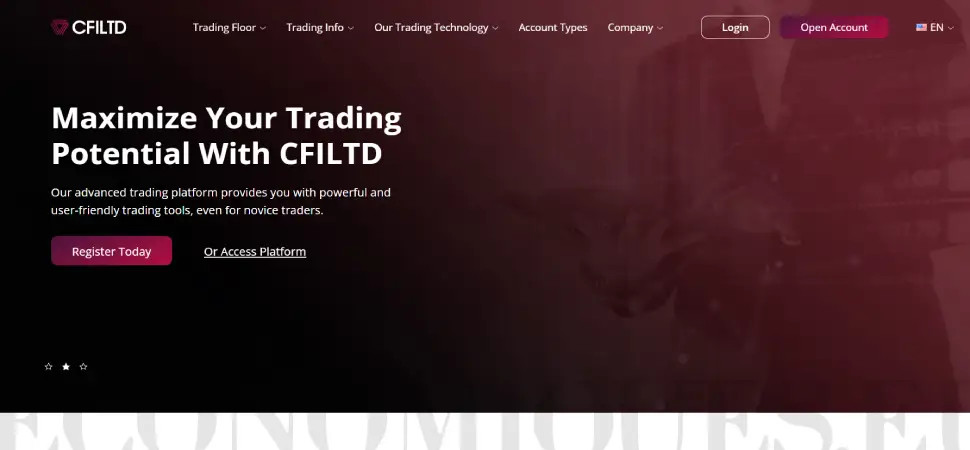04.07
Share ArticleWhat are prop trading firms and how to profit from them?

A Proprietary Firm is an investment company that only manages its own capital in the stock market. Traditionally, proprietary firms are founded by one or more traders with years of experience in banking or hedge funds who want to open their own account. The promises of such companies seem attractive to traders, but before you start cooperating with them you need to know about possible risks and mistakes to avoid.
Talented traders
For several years now, some proprietary firms have been looking for talented traders by offering them the opportunity to allocate a certain amount of capital to participate in the collaboration. Typically, the allocation of funds comes after a test or evaluation period during which the firm evaluates the skills of candidate traders, and some firms charge an entry fee to participate in the evaluation period (this can run the risk of illegal operations by such firms). In return for providing funds and resources, the firm requires a share of the profits, which typically ranges from 50% to 95%. In those cases when firms offer to pay up to 90% of the profit, an independent trader should be wary - such offers may hide a deception. Thus, when cooperating with proprietary firms, you can count on commissions ranging from 15% to 30%.
Although the real prop-firm model can be an interesting opportunity for talented traders to start their activity without their own investments, many modern "prop-firms", especially online, are actually nothing more than unregulated brokerage companies. Cooperating with them can be not only fruitless, but also dangerous in the case of outright fraud. US regulators (SEC) have already taken action in recent years by banning a number of such organizations. In addition, more and more proprietary firms offer paid mentoring programs aimed at helping novice traders. In reality, this is nothing more than a disguised sales pitch.
What types of prop firms are there?
Let's be clear: most of the firms advertised on social media are not actually companies that want to lend you capital and share the profits with you. In fact, Prop Firms exist to make as many retail traders as possible believe that you can become a professional trader by signing up for their paid offer. Thus, the Prop Firm business model is to collect as many subscription or registration fees as possible and then, as we saw a few years ago with binary options, bet that most participants will lose. We've identified three types of Prop Firm business model, which we'll discuss below:
Prop Firms in virtual trading
There is a type of Prop Firm in which all trades take place only in a virtual trading environment, without your knowledge. In this case, the traders' winnings are paid for by the entry fees of all the losers. This is very similar to the way binary options work, which aim to capitalize on the losses of individual traders and were widely popular before theAMF banned them due to the unfair nature of the offering. According to a study by SMB Training, the percentage of traders who fail at the certification stage is around 95%, and this is no coincidence. In fact, the conditions required to pass the assessment period are close to impossible: monthly profit targets in the double digits and very tight drawdowns. Other studies even claim that only 0.28% of participants manage to capitalize and win. In this case, it is important to realize that it is the $100, $150, $200 or even $400 registration fee paid by thousands of participants that will fund the capital distribution of the lucky few.
Example: you received a $100,000 distribution with a maximum drawdown of 8%, so the Prop Firm will only take $8,000 out of your pocket, which is the same as the maximum loss you can take. The firm usually credits the remaining $92,000 practically to its trading platform.

Unregulated broker
There are also proprietary firms that are actually disguised unregulated stock market brokers that place all trades on the OTC market as CFD brokers. In this case, the deposit for margin trading is disguised as a registration fee. This is a way to pass off an unauthorized brokerage service as a management service and offer leverage that exceeds the maximum allowed by law. The trader pays his losses in advance with the registration fee and gets the right to trade on the capital artificially inflated by the leverage. Sometimes with this offer there is not even an evaluation period, or the evaluation is quick (2-3 days) and easy.
Example: you have to pay €3,500 for registration (and training) to access a capital of 100,000 euros after an evaluation period. You are entitled to a maximum regulatory leverage of 10:1 to manage this capital. In reality, you are trading with €2,500 and a leverage of over 400:1, and you have paid €1,000 for training!
Futures broker partner
This is the most interesting and valid type of proprietary firm. You need to make sure that such a firm works with a serious, regulated stockbroker and actually places its clients' orders for futures contracts. The advantage of this type of firm is that there is no risk of price manipulation or fraud by the firm because you are trading directly in regulated and centralized markets.
While the firm may be interested in the trading volume of its clients, and may fund capital allocation through subscription fees, the fact remains that this is the only solution that allows for far more capital than most individual traders can put into a brokerage account.
Even if it is the most attractive solution, you still need to be careful and read the fine print in the terms and conditions. Not all proprietary futures contracts are created equal. Some have more restrictions than others.
What is the advantage of subscribing to a prop firm?
The main advantage of subscribing to a Prop Firm offer is that you are trying to get more capital than a trader can afford to put into a trading account, with the goal of turning it into an ongoing endeavor. If the statistics aren't perfect with Prop Firms, they aren't much better with individuals trying to make money trading with their own money. The advantage of prop firms is that if you fail, you won't lose all of your capital, just the registration fee.
Participating in a Prop Firm's evaluation period can also have an educational aspect, forcing the novice trader to observe a positive risk/return ratio by teaching them how to manage maximum drawdown. In this case, it is preferable to sign up for the smallest package: some Prop Firms offer packages starting from €35. This will be more than enough to learn in a virtual environment. Nevertheless, you need to remain particularly vigilant when dealing with such companies to avoid falling victim to scammers. It is also important to read the contracts offered to you carefully, avoiding untrue terms and conditions.


Reviews